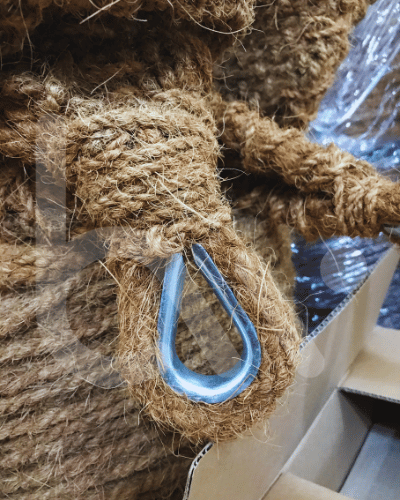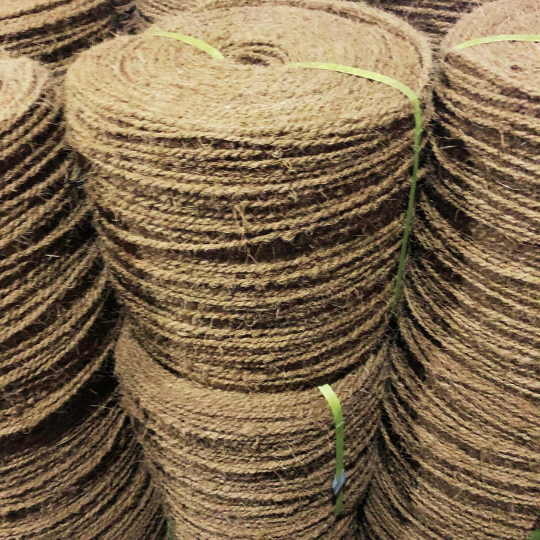
Coir Rope
Coco rope is a type of rope made from the fibers of coconut husks. Coir, also known as coconut coir, is derived from the outer husk of coconuts. The process of making coir rope involves extracting the fibers from the coconut husk, which are then twisted or braided together to form a durable and strong rope.
Coir has natural properties that make it resistant to saltwater, making coir rope suitable for various applications, particularly in marine environments. Coco rope is commonly used in agriculture, construction, and for various domestic purposes. It is known for its strength, flexibility, and biodegradability.



Coco Rope Used For
Gardening
Coir rope finds widespread use in supporting climbing plants like beans, peas, and cucumbers. It’s also valuable for creating trellises for vines, securing plants to stakes, and crafting netting for fruit trees.
Shipping and Transportation
In shipping, coir rope plays a vital role in securing cargo on ships and constructing fishing nets for both commercial and subsistence fishing endeavors.
Construction
Within the construction industry, coir rope serves multiple functions. It’s utilized for tasks such as tying rebar, securing scaffolding, and as a versatile rope for lifting and pulling.
Household Use
Coir rope or coco rope is handy around the house for various tasks, including tying up plants, hanging items, and adding decorative touches to spaces.
Spesification
Type : Rope Nylon / Rope Cotton
Color : Golden – Brown
Natural
Diameter : 5 - 6 mm
Customized

People Also View
Hydroponic
Coconut Peat
Coir Fiber
Coconut Derivative
Charcoal
Others
What is coco rope?
Coco rope is a type of rope made from the fibers of coconut husks (coir). Coir is a natural, durable material that is often used in various products, including ropes, mats, brushes, and more. Coco rope is strong, resistant to wear, and has excellent water resistance, making it ideal for outdoor and marine environments. It is commonly used for marine applications (like mooring ropes), gardening (for plant ties or trellises), and construction (for reinforcing materials like geotextiles or mats). The rope is typically brown in color and has a rough texture, making it a sustainable and eco-friendly alternative to synthetic ropes.
How strong is coco rope?
Tensile Strength: Coir rope can handle moderate to heavy loads, typically ranging from 250 to 1,000 kg depending on the thickness and construction. It is particularly known for its high resistance to saltwater and moisture, which makes it ideal for marine applications and outdoor use.
Applications: It’s commonly used in marine applications, like mooring lines and dock ropes, as well as for gardening, plant supports, erosion control, and decorative purposes.
While coir rope is not as strong as synthetic ropes (like nylon or polyester), it is still quite durable for many applications and is valued for being eco-friendly and biodegradable.
What are the common uses of coco rope?
Coco rope is highly versatile and is commonly used for various applications such as gardening, erosion control, and decorative purposes. It is also utilized in construction for creating coir logs and mats, as well as in home decor for rustic and eco-friendly designs. Its natural and biodegradable properties make it an ideal choice for sustainable projects.
